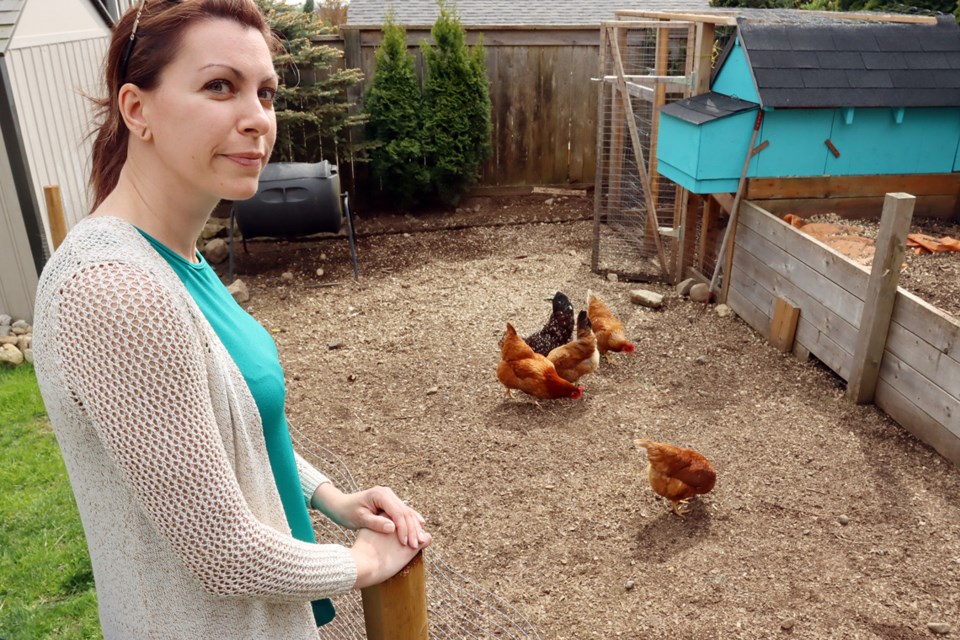Port Moody residents won’t be allowed to raise chickens in their backyard.
On Tuesday (Oct. 26), council approved a staff recommendation the fowl and their coops be banned in the city.
In a report, policy planner Jess Daniels said the BC Conservation Officer Service (BCCOS) expressed concerns permitting backyard hens would hinder its efforts to prevent conflicts between wildlife and humans as opportunistic bears could be attracted to the enclosures, their inhabitants and their feed.
Todd Hunter, the sergeant of the Fraser North Zone for BCCOS, said in a letter to the city any increase in wildlife conflicts would “further strain resources for them to respond effectively to already high call volumes across the zone.”
He pointed out that officers already deal with about 400 wildlife conflict calls in Port Moody every year, most of them involving black bears.
Hunter’s concerns were echoed by local wildlife advocate Judy Taylor-Atkinson, who told council the city needs to be “committed to reducing attractants and not adding to them.”
Carla Parr-Pearson of Tri-Cities Bear Aware said her group logged numerous troublesome bear encounters last summer, including one on Heritage Mountain in which a bruin broke into a family’s outdoor rabbit hutch and killed the pet residing inside.
But Dana Dunne, whose family was raising five hens in a coop behind their Heritage Mountain home until recently, said they had no such incidents.
Dunne, who made a presentation to council last May about her chicken-raising experiences in an effort to get the city to legalize backyard coops, said the birds taught her three sons invaluable lessons about food security and sustainability.
The boys were able to gather fresh eggs for breakfast every morning, and the chickens’ droppings were composted for use in the family’s garden that grows beets, carrots, peas, strawberries and even an apple tree.
Dunne said the family elected to get rid of its small flock last summer as their presence was technically skirting Port Moody’s existing bylaw that only allows animals that can be kept indoors, in a residence, overnight.
She added the chickens’ former run has been converted into a larger garden and the family is installing solar panels on the roof of their house so lessons about sustainability can continue.
“We’re trying to be the change we need in this world,” she said.
While Daniels acknowledged the issue of food security in her report, she said any benefits of backyard chickens would be trumped by neighbourhood concerns over increased noise, the disposal of the fowls’ waste, the potential for unregulated sales of hens and their eggs, as well as breeding and even escaping birds.




